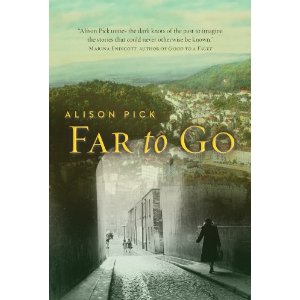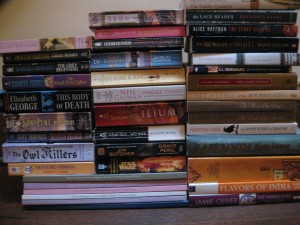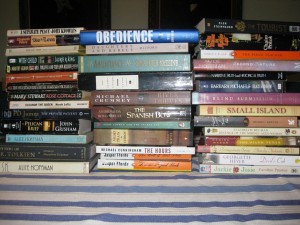 I am very excited today to be able to bring you an interview with my very own cousin, Alison Pick, about her most recent novel, Far to Go, published just recently by House of Anansi Press. It can be ordered from Canada, and will be released in the States by Harper Perennial in summer, 2011. Don’t sorry, I will be reminding you when it comes out in the States! Far to Go, inspired in part by the lives of my grandparents and my father, is the story of one Jewish family’s experiences during the lead-up to the Nazi occupation in 1939 in Czechoslovakia. Paul and Annaliese Bauer are affluent, secular Jews whose lives are turned upside down by the arrival of the German forces. Desperate to save themselves, they manage to secure a place for their six-year-old son, Pepik, on a Kindertransport to England. Far to Go is also the story of how what happened to the Bauers is remembered by those who survived, and the stories that are told about them.
I am very excited today to be able to bring you an interview with my very own cousin, Alison Pick, about her most recent novel, Far to Go, published just recently by House of Anansi Press. It can be ordered from Canada, and will be released in the States by Harper Perennial in summer, 2011. Don’t sorry, I will be reminding you when it comes out in the States! Far to Go, inspired in part by the lives of my grandparents and my father, is the story of one Jewish family’s experiences during the lead-up to the Nazi occupation in 1939 in Czechoslovakia. Paul and Annaliese Bauer are affluent, secular Jews whose lives are turned upside down by the arrival of the German forces. Desperate to save themselves, they manage to secure a place for their six-year-old son, Pepik, on a Kindertransport to England. Far to Go is also the story of how what happened to the Bauers is remembered by those who survived, and the stories that are told about them.
The events of 1938 and 1939 unfold through the eyes of Marta, the governess, a woman uncertain of her own origins. Why did you decide to make her the viewpoint character?
Good question. Truthfully I can almost never remember why I did anything in a particular way, beyond the fact that it felt intuitively right. But the idea of an unreliable narrator was appealing. I often turn to Jack Hodgins’ ‘A Passion for Narrative,’ – my novelists’ bible – and I think it was his suggestion to view the main characters, in my case Pavel and Anneliese, through outside eyes. That said, through the process of writing Marta grew to become a main character herself. She is a liminal character, not Jewish but close with Jews (and, as you point out, unsure of her origins, so with the possibility of being one); not the mother of a child sent away but close enough to understand a mother’s perspective. She is both on the Bauers’ side and, if only accidentally, against them. I wanted this tension to work in concert with the plot so the reader wouldn’t be certain what they could trust. The desire to keep reading would be to discover how the story turns out but also how Marta—who is still young and naïve—resolves as a person.
Continue reading “An Interview with Alison Pick”



